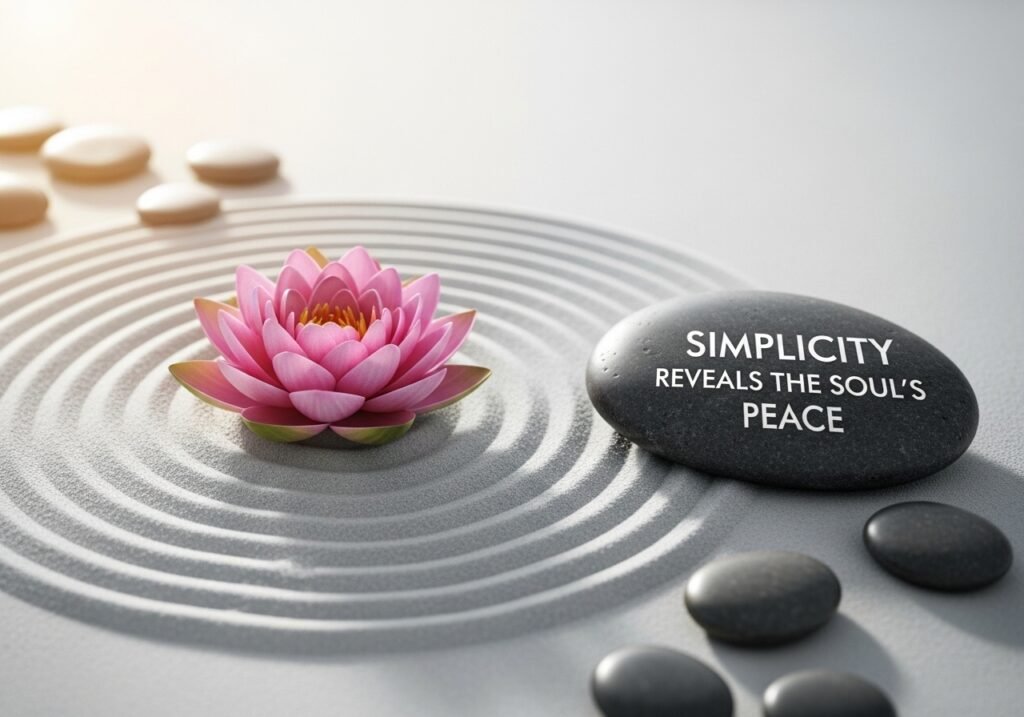Introduction
Modern life is filled with moral complexities. We often face dilemmas where social norms or legal standards don’t fully answer the deeper question: “What is the right thing to do at the soul level?” This is where spiritual ethics becomes essential.
Unlike conventional ethics—shaped by societal rules, cultural traditions, or external laws—spiritual ethics transcends boundaries. It reflects universal truths that guide us toward compassion, inner peace, and alignment with higher consciousness.
The journey of spiritual ethics is not about rigidly following rules; rather, it’s about embodying values that expand awareness and create harmony within ourselves, with others, and with the greater universe. Below are the 6 core principles of spiritual ethics that can help you lead a conscious and purposeful life.
Non-Harm and Compassion (Ahimsa)
At the foundation of spiritual ethics lies ahimsa, the principle of non-harm. This isn’t just about avoiding physical violence—it extends to thoughts, speech, emotions, and intentions. Every word and action carries an energetic vibration. Choosing not to harm means choosing compassion in every dimension of life.
When you consciously avoid anger, cruelty, or unnecessary criticism, you are not just protecting others—you are purifying your own soul. Compassion naturally flows when you see others as part of the same universal essence. This practice makes your presence healing rather than harmful.

Honesty, Truth, and Integrity
Spiritual ethics emphasizes living in truth, not only in what you say but also in how you live. Honesty here does not mean being blunt or harsh—it means aligning words and actions with sincerity and respect.
Integrity ensures that the inner self and outer expression are not in conflict. When your values match your behavior, you create trust, both in relationships and within your own conscience. A spiritually ethical life avoids deception, manipulation, and falsehood because these cloud the soul’s clarity.
Living with integrity also requires courage—to admit mistakes, to be authentic, and to stand by higher principles even when it is inconvenient.

Reverence for All Life
Everything in existence is interconnected. Spiritual ethics teaches us that every form of life—human beings, animals, plants, even the earth itself—carries sacredness. To live ethically is to act with reverence for this interconnected web.
When you respect all life, your decisions change. You may choose more sustainable ways of living, adopt kindness toward animals, or treat every person you meet with dignity. This principle reminds us that harming one part of the whole ultimately harms ourselves.
Reverence transforms ordinary acts—planting a tree, feeding a stray animal, recycling waste—into sacred offerings.

Responsibility for Choices and Consequences
Every decision we make ripples outward, affecting not only ourselves but the collective energy of the world. Spiritual ethics asks us to take full responsibility for these choices.
This principle removes the temptation to blame others or circumstances. Instead, it empowers us to act consciously, knowing we are co-creators of reality. Responsibility doesn’t mean perfection—it means being aware of your impact and choosing the most compassionate path available.
Through responsibility, we reclaim our spiritual power. We move from victimhood to empowerment, understanding that every thought, word, and action is part of a bigger spiritual equation.

Service and Selflessness
Service is one of the highest expressions of spiritual ethics. True service arises from compassion, not obligation or ego. It could be as simple as listening to someone’s struggles, volunteering in your community, or offering kindness in everyday moments.
This principle shifts the focus from “What can I gain?” to “How can I contribute?” Selfless service dissolves the boundaries of the ego and reveals our shared humanity. When practiced with love, service becomes a spiritual practice that uplifts both the giver and the receiver.
It also teaches us humility: that we are all channels of divine energy, here to support one another’s journey.

Simplicity, Detachment, and Mindfulness
Modern life often equates success with accumulation—more possessions, more recognition, more control. Spiritual ethics, however, invites us toward simplicity and detachment.
Detachment doesn’t mean withdrawing from life or being indifferent. It means releasing the unhealthy grip of attachment to material possessions, relationships, or outcomes. When we let go, we create space for peace, gratitude, and clarity.
Combined with mindfulness—being fully aware in the present moment—simplicity becomes a profound way of living. By valuing experiences over possessions, presence over distraction, we align more closely with our spiritual essence.

Conclusion
Spiritual ethics is not about following rigid commandments; it is about awakening to higher principles that guide us toward harmony, truth, and compassion. These 6 guiding principles—non-harm, honesty, reverence, responsibility, service, and simplicity—help us live in a way that nourishes the soul while uplifting the collective consciousness.
In practicing spiritual ethics, we move beyond self-interest and become living reflections of love, truth, and unity. Ultimately, spiritual ethics asks a simple yet profound question:
“Will my actions bring healing and light into the world?”
When the answer is yes, you are walking the path of true spiritual integrity.
🌿 FAQs on Spiritual Ethics
Q1. How is spiritual ethics different from traditional ethics?
Traditional ethics is often shaped by cultural norms, laws, or societal rules. Spiritual ethics, however, transcends boundaries and is based on universal truths such as compassion, non-harm, and interconnectedness. It focuses on the soul’s alignment with higher consciousness rather than external approval.
Q2. Can spiritual ethics be practiced without following a religion?
Absolutely. Spiritual ethics is not tied to a specific faith or doctrine. It is universal and can be embraced by anyone, regardless of their religious or non-religious background. It is about living with love, integrity, and awareness.
Q3. Why is responsibility a core principle of spiritual ethics?
Responsibility shifts us from victimhood to empowerment. By taking ownership of our choices and their impact, we recognize our role as co-creators of reality. This awareness allows us to make conscious, compassionate decisions that benefit both ourselves and the collective.
Q4. How does simplicity connect to spirituality?
Simplicity allows us to detach from material excess and focus on what truly matters—peace, gratitude, and mindful living. By letting go of unnecessary attachments, we align with the essence of the soul, experiencing freedom and deeper spiritual clarity.
